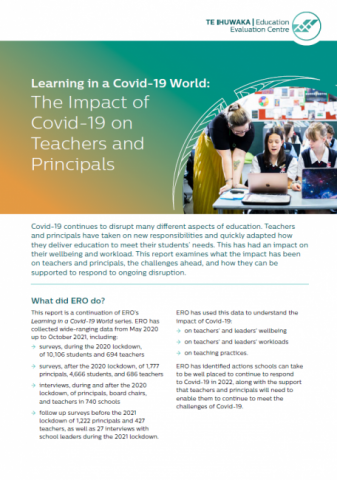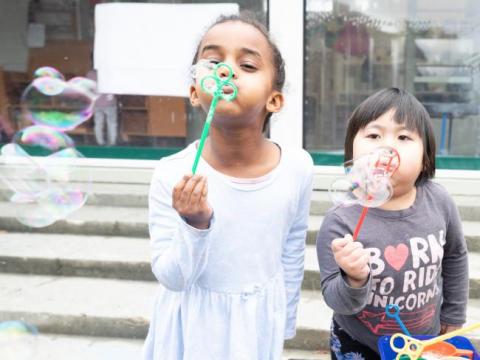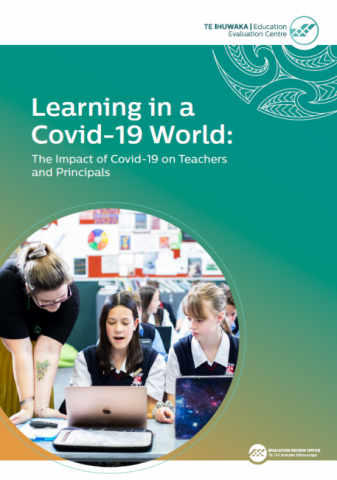The Impact of Covid-19 on Teachers and Principals - Summary
Published: 06 Dec 2021
This short summary of our longer report Learning in a Covid-19 World: The Impact of Covid-19 on Teachers and Principals looks at the impact of Covid-19 on teachers and principals – including how Covid-19 has impacted enjoyment in work and workload. It also sets out examples of how schools can prepare for 2022 and what supports will be needed for teachers and principals.
- Audience:
- Academics
- Education
- Parents
- Schools
- Content type:
- Research
- Topics:
- COVID-19
- Te Ihuwaka | Education Evaluation Centre














